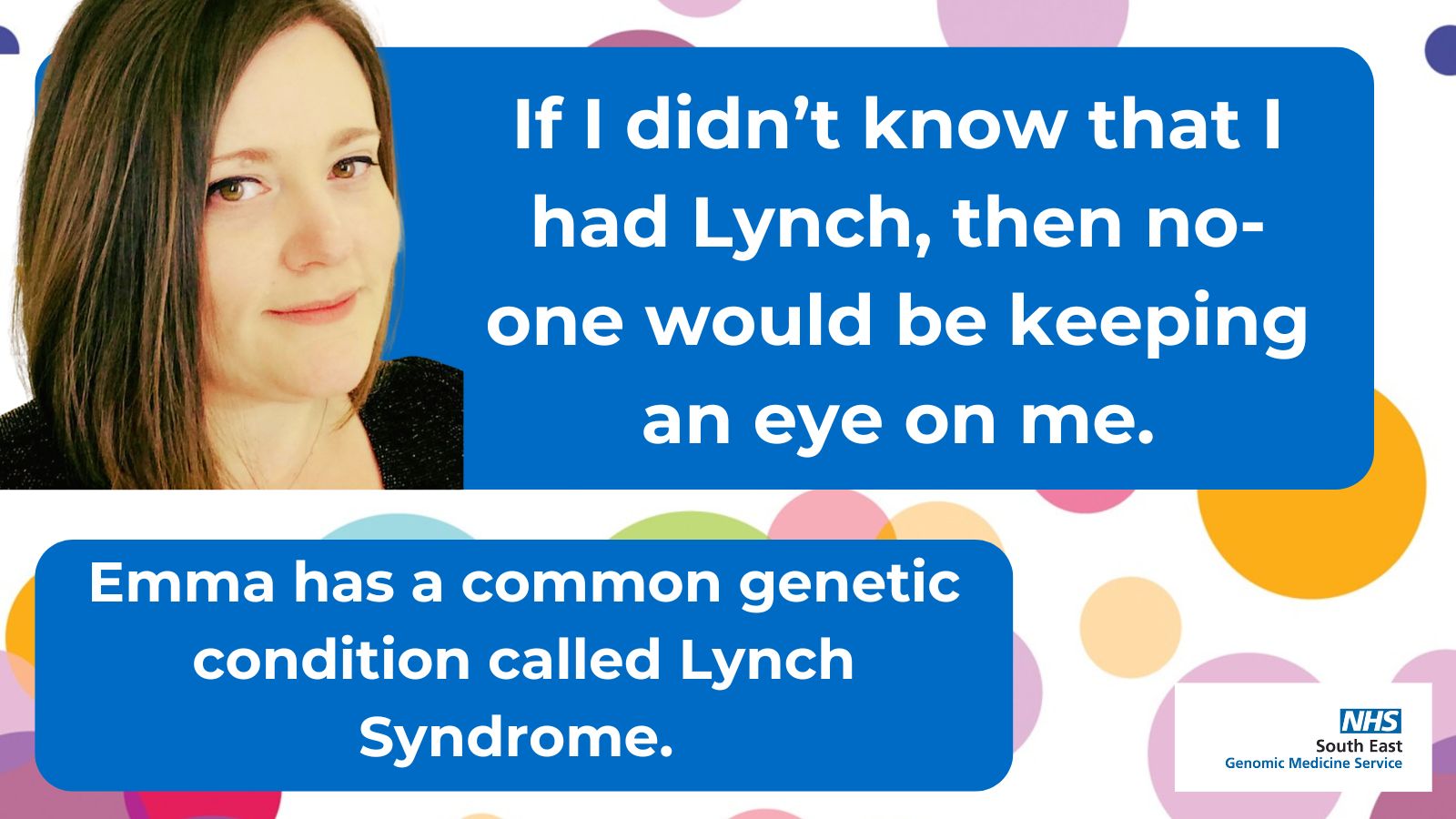
Emma was diagnosed with Lynch Syndrome just before her thirtieth birthday. It’s a relatively common genetic condition that increases your risk of developing cancer by 80%.
She was only diagnosed because her Dad got bowel cancer.
“Dad didn’t want to be that pushy patient, but he knew something wasn’t right. He’d had a cough that wouldn’t go away so he visited his GP who arranged for a blood test. After that everything changed.”
Emma’s Dad was diagnosed with bowel cancer. The tumour had made him anaemic, and this was causing the cough. He started treatment at Maidstone Hospital straight away and they referred him to the Guy’s Genetics Clinic to be screened for Lynch Syndrome.
The screening showed that he had a fault in his PMS2 gene which is one of the genetic changes that causes Lynch Syndrome. As a hereditary condition, he was advised that his children should also get tested.
“This was a difficult time. I was concerned for my Dad, his diagnosis, treatment plan and the future, but he was concerned that I might have inherited Lynch Syndrome. I’d never even heard of Lynch Syndrome but all of a sudden, we were talking about it all the time! After discussion with my parents, I decided that would like to know if I had inherited the condition.”
Emma travelled from her home in Canterbury to Guys Hospital in London. She spent time with a genetic counsellor talking about Lynch Syndrome and what it could mean for her. She decided that she wanted go ahead with the test.
“Dad had handled his own diagnosis very practically but when I found out I had Lynch Syndrome it really rocked him. It was the first time I saw him cry.”
Since then Emma has had regular colonoscopies to check for early signs of bowel cancer. She’s also become more aware of her lifestyle and how to look after herself. Her father has finished his treatment and he too is regularly monitored for further bowel cancers.
“I feel very grateful that I know I am being regularly monitored. If I didn’t know I had Lynch Syndrome, no-one would be keeping an eye on me.”
Emma has used her experience to help other people. She’s actively involved with the Kent & Medway Cancer Alliance and is helping to ensure everyone in Kent who has either bowel or endometrial cancer gets screened for Lynch Syndrome.
“I’ve really enjoyed the last two years as a patient rep. I’ve shared my experience with so many people as I want professionals to think about the patient in front of them as well as their families. It’s not just the person in front of them with the cancer diagnosis; by screening for Lynch Syndrome they could prevent future cancers in their patient AND their families.”
“Right now we’re working on a new Lynch screening clinic which is being set up in Maidstone. I had to go to London for my screening so this is a big step forward for Kent residents.”
Up to 300,000 people are thought to have Lynch Syndrome in the UK right now, but only 5% of them know they have it.
Everyone who is diagnosed with bowel or endometrial cancer are now offered genetic testing for Lynch Syndrome as part of a national NHS programme.
A genetic diagnosis of Lynch means that Doctors can treat your cancer more effectively, but it also means your family are entitled to genetic testing for Lynch and so may help prevent cancer in them.
Lynch Syndrome doesn’t cause cancer, but it does increase your risk of developing bowel cancer by 80% during your lifetime. The genetic change seen in Lynch can lead to more abnormal cells developing which then multiply and increase the risk of cancer.
